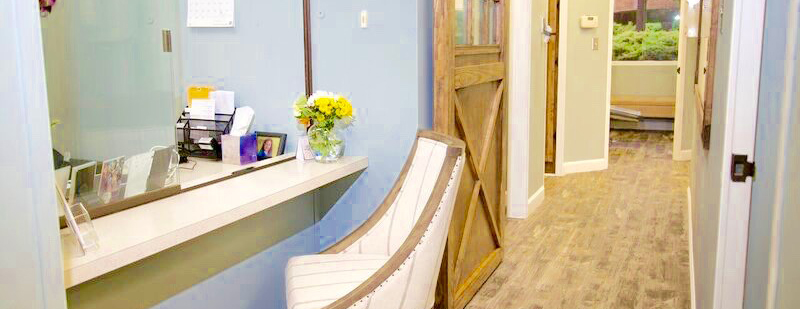
Frequently Asked Questions
What is a Periodontist?
A periodontist is a dentist who specializes in the diagnosis, prevention and treatment of periodontal disease and in the placement of dental implants. Periodontists receive extensive training in these areas, including three additional years of education beyond dental school. Additionally, they can perform cosmetic periodontal procedures to help the patient achieve the smile they desire. Dr. Robles is a Diplomate in the field of Periodontology.
What is a Diplomate?
A Diplomate is a periodontist who has made significant achievements beyond the mandatory educational requirements of the specialty and is certified by the American Board of Periodontology
What is periodontal disease?
Periodontal disease, also known as gum disease, is a chronic bacterial infection that affects the gums and the bone supporting the teeth. Periodontal disease can affect one tooth or many teeth. It begins when the bacteria in plaque ( the sticky colorless firm that constantly forms on your teeth ) causes the gums to become inflamed. Even perfect oral hygiene is not enough to ward off periodontal disease in everyone. Other risk factors include tobacco use, general health issues, medications, stress, genetics, hormonal changes and poor nutrition. Symptoms of periodontal disease include bleeding gums, red swollen, tender gums, gums that have pulled away from the teeth, persistent bad breath, pus between the gums and the teeth, loose or separating teeth, a change in your bite.
More than one in three people over thirty has a form of periodontal disease that has advanced beyond gingivitis. More than half of people aged 55 and older have periodontitis.
Knowing the state of your periodontal health is important. It is important to know if you are in good periodontal health because periodontal disease and dental decay are the primary causes of adult tooth loss. But even more importantly , recent research has found a relationship between periodontal infection and more serious health problems , such as cardiovascular disease , diabetes, respiratory disease and preterm low weight babies.
Will the procedure hurt?
State of the art anesthesia is used to assure patients are comfortable during the procedure. IV/conscious sedation is a great option for increasing relaxation and decreasing anxiety during your procedure. 95% of our patients only need to take Ibuprofen or Tylenol after the procedure even though they are given a prescription for something stronger. Depending on the procedure, an antibiotic may also be prescribed.
Why do I need a consultation appointment before my procedure?
The purpose of the consultation appointment is to perform a complete clinical examination, review medical and dental history, to ensure the recommended treatment is indicated, to rule out any potential contraindications for the procedure, to discuss treatment options and the risks and benefits of the recommended procedure.
Will I be able to eat after surgery?
Yes. Soft foods such as macaroni and cheese, soup, soft sandwiches, etc., can be eaten the day of the surgery. “Crunchy” foods, however, should be avoided.
Can I go back to work after the procedure?
We generally tell patients to go home and take it easy the day of surgery and to resume normal activity the following day.
How long will the procedure take?
The majority of our procedures take approximately 1 hour or less. More extensive procedures may take longer. A follow-up appointment is scheduled in one to two weeks after the procedure with additional appointments made to ensure proper healing and ideal oral hygiene.
Do you file my dental insurance?
We will verify each patient’s dental insurance prior to their first visit to give the most accurate estimate of insurance benefits. It is the patients responsibility to bring both current and correct insurance information at the first appointment. We encourage patients to call their insurance carrier to fully understand the provided coverage. As a courtesy, we will file an insurance claim for all treatment completed with our office for our patients.
What do I need to do before my periodontal procedure?
- You need to have a good meal before the procedure. You may drive yourself to the procedure.
- If you will be undergoing sedation, do not eat or drink anything 6 hours before the procedure. You may drink water up to two hours prior to the procedure and should take your normal medications unless otherwise instructed by Dr. Robles. You will need to bring an driver with you to your appointment.
- Patients with special medical considerations, such as diabetes or the use of blood thinners, including aspirin, will need to discuss their preoperative care with Dr. Robles.
